Does life imitate art or does art imitate life? Oscar Wilde was more inclined towards the former; in his famous 1889 essay The Decay of Lying, he opined that life imitates art far more than art imitates life. I, on the other hand, think it’s a little bit of both, especially with regards to cinema. Of course, cinema is a reflection of the times we live in, but isn’t it also true that we too are a reflection of the movies we see. Which other art form affects our likes, dislikes and our idea of happiness the way movies do? Without even knowing it, our lives are constantly being molded by the films we watch. In fact, I tend to believe that the movies we watch are a reflection of our reflection! It is getting whirlwind, isn’t it!
And nothing else personifies this complicated relationship more than the characterizations we see in cinema. Great characters always have real life inspirations, and they become an inseparable part of our existence. Great characterizations increase the emotional heft and thematic texture of a movie, and they connect with you in ways unimaginable. In essence, great characterizations would always be universal in their rendering of humanity and the infinite mysteries of the human mind. I am someone who has always preferred character-driven movies over plot-driven ones, more so because of the depth that powerful characters lend to a movie, and since every viewing inevitably becomes more satisfying than the previous one. While complex plots unravel themselves after a single watch, strong characterizations will move and affect your conscience for eternity and they would help you in unraveling the mysteries of your own lives.
And so, we at The Cinemaholic, have decided to list our favorite character studies of the 21st century. Do note that this is neither a list of the greatest performances nor is it a ranking of the quality of these movies. What we have attempted to do is unlock the complexities of the characters in these films and help understand them better. As always, dissent and constructive criticism is always welcome and we look forward to your thoughts in the comments. So, without further ado, let us dig in. You can watch several of these character study movies on Netflix, Hulu or Amazon Prime.
10. Patrick Bateman – American Psycho
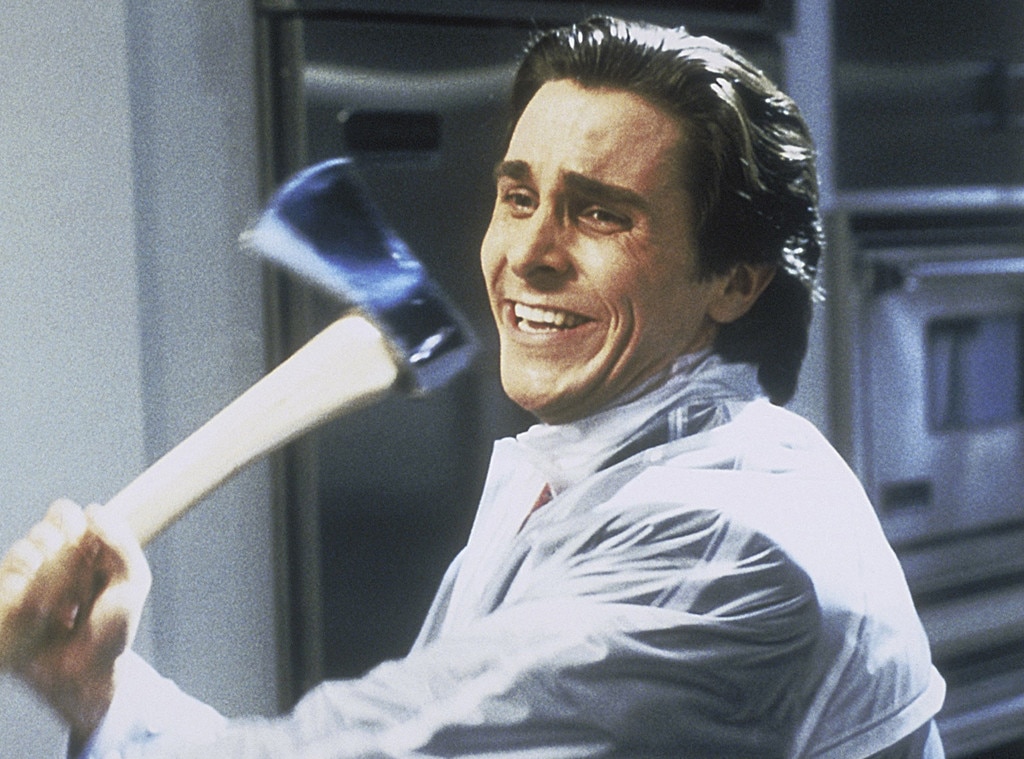
Mary Harron’s cult horror classic is not just a thrilling piece of cinema, it is also a thematically rich character study of a man trapped within his own obsessions and paranoia. Patrick Bateman is a rich, young and suave Wall Street executive, a man who has a perfect life so to speak, but he is neither happy nor content. Bateman has constructed the perfect façade that he drapes his life with, but beneath the surface, we see an egotistical, obsessive-compulsive, mentally disturbed maniac with homicidal tendencies. And slowly over the course of the movie, we see him unraveling as the façade is peeled off revealing an unstable, uncontrollable man consumed by his rage and delirium.
Adapted from a novel of the same name, there are obvious characteristic inspirations from the classics like ‘Taxi Driver’ and ‘Psycho’, both featuring men whose mental instability and paranoia drives them to ambiguous extremes. And while ‘American Psycho’ never attains those levels, it still remains a very compelling portrait of loneliness and ennui in a fiercely competitive world, and a career defining performance by the young Christian Bale raises the bar several notches higher with his cleverly detached yet emotionally vulnerable performance.
Read More: Best Gambling Movies of All Time
9. Nina Sayers – Black Swan
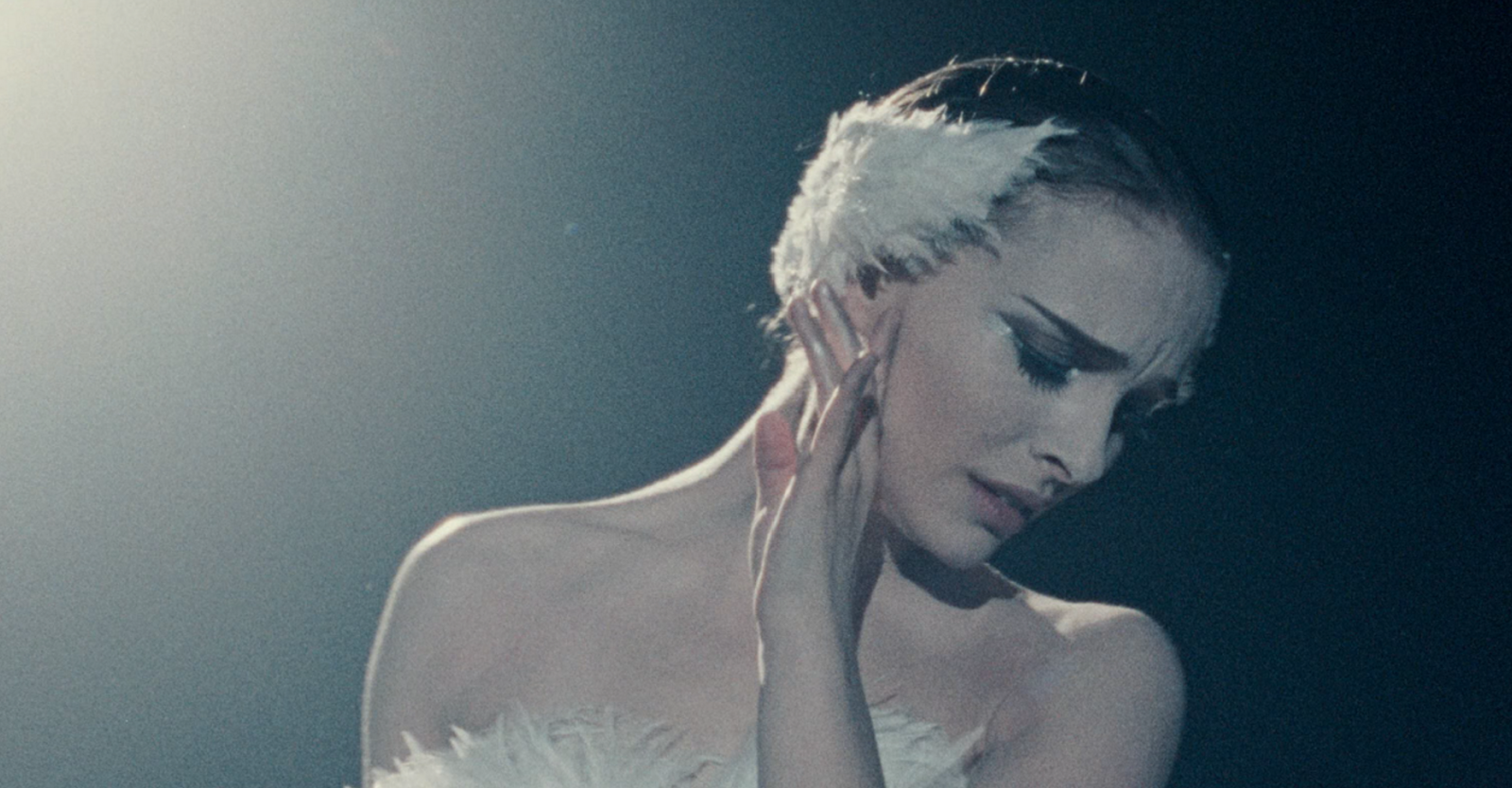
Natalie Portman was just a ‘damsel in distress’ from the Star Wars flicks before she and Darren Aronofsky came together to deliver one of the darkest and most complex characterizations of the century. Another psychological drama from the man who gave us ‘Pi’ and ‘The Fountain’, ‘Black Swan’ is a tale of an artist slowly intertwining herself into her art, as she loses herself in search for the ultimate prize – perfection.
Nina is a talented yet timid young ballerina who is selected to play the dual role of the ethereal White Swan and the dark, sensual Black Swan in the production of Tchaikovsky’s Swan Lake. Though she plays the White Swan with finesse, Nina is unable to imbue the dark seductiveness of the Black Swan, and in her pursuit of ultimate perfection, she loses her conscious self and her identity. There is a sense of sad, melancholic beauty in Nina’s disintegration as a human being as her art reaches its crescendo, and Aronofsky brilliantly juxtaposes these contradictions both within Nina and the movie itself and lends them both a rare yet incredibly relatable humanity. And Natalie Portman plays the part to absolute perfection, as her sad eyes and porcelain face betrays the pain, confusion and paranoia that has laid siege on her life.
Read More: Best Workout Movies of All Time
8. Theodore Twombly – Her
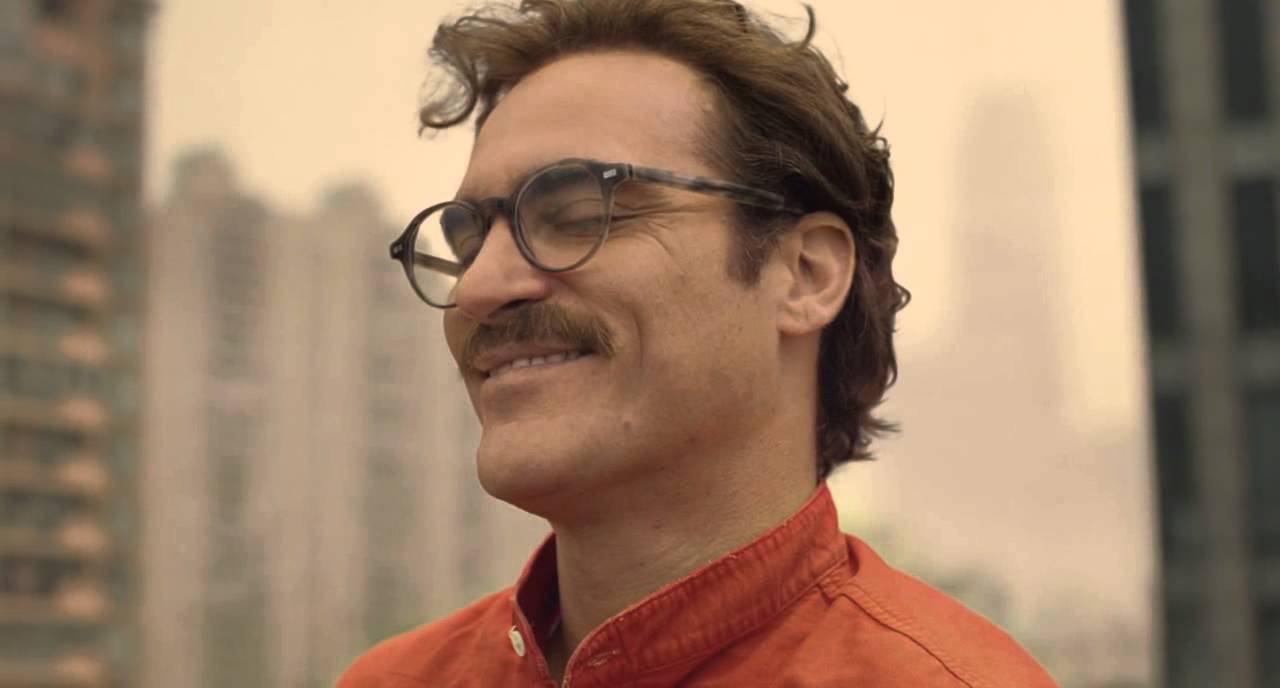
There is something so inexplicably romantic yet inevitably tragic about a man falling in love with an AI system. Theodore Twombly is a sad, depressed soul who has not been able to get over his previous relationship; the memories of his past continue to hold him hostage as he is unable to move on or find love. That is, until he buys a personalized artificial intelligence software named Samantha and forms a rare personal connection with her. He feels a great sense of freedom and openness in this weird relationship, one without the artifice of modern romance while being incredibly liberating. And as he slowly falls for this faceless AI, our inhibitions are also lifted as we cheer for the couple and their uncertain future.
Writer-director Spike Jonze paints a very mature portrait of the state of modern relationships while forcing us to reassess our preconceived notions of love, romance and emotional connection. But what ultimately makes Theodore so compelling is that he could very well have been any of us; a lonely man falling for someone who is understands him, accepting and loving him for who he was. And Joaquin Phoenix relentlessly inhabits every frame of the movie, brilliantly encapsulating the vulnerability and inimitable humanity and love that Theodore personifies.
Read More: Best Movies About Nihilism Ever
7. Michele Le Blanc – Elle

One of the most controversial movies released last year, ‘Elle’ is a movie that blew me away with its disturbing humor and esoteric social commentary. Following the life of a rich, successful businesswoman who is raped in her home by an unknown assailant, ‘Elle’ is post-feminist masterpiece with an unapologetic woman in the lead, who doesn’t conform to normalities and doesn’t explain her actions. A fascinating woman, there is a strange soap-opera-esque quality to Michele’s life; everything is happening at once. And it could all have easily gone south, but for the sheer brilliance of Isabelle Huppert who gives one of the greatest performances of the century.
Huppert brings a certain emotional undercurrent which complements her smart, fearless exterior and as Michele, she doesn’t let her rape take control of her life; she continues to be sexually active, and remains as emotionally distant as she has always been. She is not a victim; no, director Paul Verhoeven drives home the point that she is very much a part and parcel of a society that fetishes rape-culture and sexual objectification; she is as guilty as her assailant. ‘Elle’ sure is a movie that can disturb you to the core, but it isn’t a “rape comedy” as many believe it to be; in fact, it is a movie about a woman whose rape frees her; it liberates her from the shackles that bound her existence and empowers her to be the woman she wants to be.
Read More: Best Movie Franchises of All Time
6. Freddie Quell and Lancaster Dodd – The Master

Paul Thomas Anderson is unarguably one of the greatest American auteurs working today. A master of rich characterizations, the thematic ambiguities in Anderson’s cinema are what makes him a genius. But with ‘The Master’, Anderson doesn’t just present us with a character study, he assiduously subverts all compulsions of a plot or narrative cognizance, and rather puts two complex men together as we watch their relationship unfold on screen. While Freddie is a man lost within his own consciousness, desperately searching for freedom from his post-war ennui, Dodd is a charismatic spiritual guru who is fascinated by Freddie’s wanton abandon. As these two men square off, sizing each other up in the hopes of one-upping the other, the true nature of human behavior is laid bare – our need for companionship, our thirst for faith, our quest for acceptance and above all, our obsession with ourselves.
‘The Master’ is a decidedly obscure piece of cinema; it isn’t easy to like, but claws its way into your psyche and refuses to let go. Philip Seymour Hoffman and Joaquin Phoenix bring in a weird emotional intensity and vulnerability to their performances that is at once both eerily magnetic and strangely repulsive. Anderson uses the inexplicable attraction that drives these two men towards each other to make a very subtle examination of the human condition and what makes us tick.
Read More: Best British Movies of All Time
5. Caden Cotard – Synecdoche New York
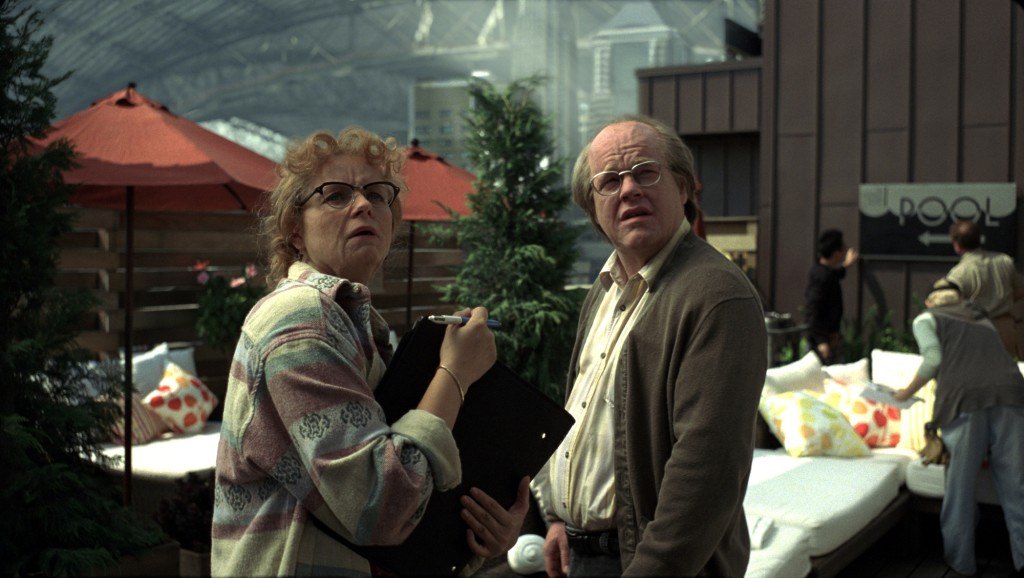
The directorial debut of the legendary screenwriter Charlie Kaufman, ‘Synecdoche, New York’ is one of those movies that comes only once in a lifetime. The story of Caden Cotard, a paranoid, insufferable theater director struggling to come to terms with his own mortality; it is one of the saddest and most depressing films ever made and also the most poignant. A play on the idea of time and perceptive reality, the movie elegantly shifts from gritty realism to dreamlike surrealism as Caden struggles with his loneliness and neediness. While, the movie is perfect in its screenplay and other technicalities, it could have all gone in vain had it not been for Phillip Seymour Hoffman.
In portraying the life of a middle-aged idiosyncratic man all the way to his death, Hoffman turns in a performance that one can only call “miraculous”. He brings all of Kaufman’s complex metaphysical and philosophical ideas to life, while playing a character that could well be any of us. Caden is paranoid about his death, he is lonely and he misses his family, and he loathes his existence. Hoffman manages to bring out all the emotional turmoil and horrors of his character with such sensitivity, it will blow you away. His sad eyes and melancholic face beautifully conveys not only the pain and fears deep within Caden, it is also opens a door into our own fears and insecurities as individuals, and in turn question our existence. ‘Synecdoche, New York’ is undoubtedly one of the finest cinematic experiences of the century and Hoffman’s performance is one of the ages; something which probably would never be reprised again.
Read More: Best Black Romantic Movies of All Time
4. Betty Elms/Diane Selwyn – Mulholland Drive
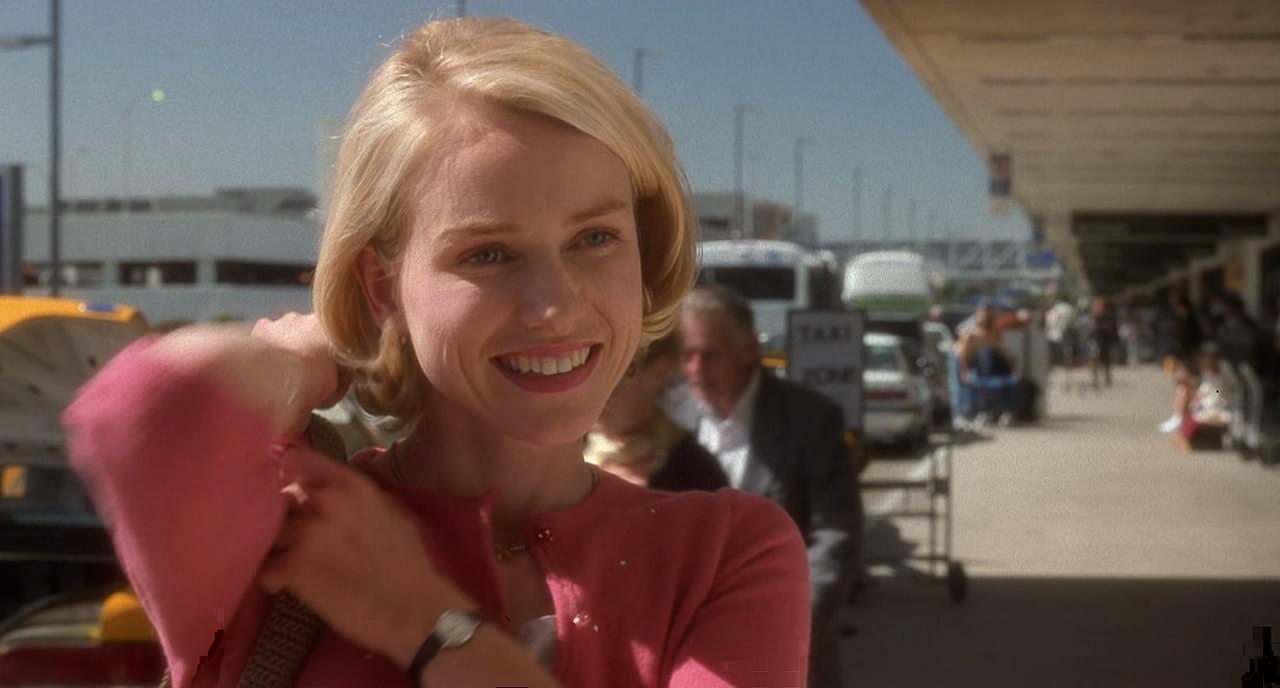
Our inclusion of anything related to ‘Mulholland Drive’ has become a running gag amongst our readers; I, however am not willing to let that stop me from acknowledging the brilliance of Betty/Diane in the David Lynch masterpiece. ‘Mulholland Drive’ is one of the greatest movies I have ever seen, a movie that changed my perception towards life and cinema. A neo-noir mystery drama set in the city of dreams, the movie follows an aspiring young actress as she helps a strange amnesic woman find her true identity. However, as they embark on this journey, identities overlap and realities coalesce as we are treated with seemingly unrelated vignettes and events leading up to a climax that may shock you to the core. Lynch’s writing doesn’t give much depth to any of the characters, at least not explicitly, as he channels the aura of the classic Hollywood gems and sets a campy, almost parodic tone, as we buy into the artifice he constructs. But, when he finally pulls the rug off from under our feet, our perception of reality comes crashing down as we experience the fear and humiliation of loneliness.
Unlike what it presents itself to be, ‘Mulholland Drive’ is not another surreal dreamscape from Lynch; rather, it is a heart-breaking tale of love, hope and dreams, and how our minds wrap itself around our fantasies and our realities. And Betty/Diane is the oxygen that drives the movie; Naomi Watts, in one of greatest acting performances of all time, gives her heart and soul into playing these two women; these women, who Like Dr Jekyll and Mr Hyde, personify the complexities of the human consciousness and the nature our existence. Never since Ingmar Bergamn’s ‘Persona’ have we seen two women been portrayed with the eerie magnetism and raw energy that Lynch displays in ‘Mulholland Drive’, and that is an achievement in itself.
Read More: Best 9/11 Movies of All Time
3. Charlie Kaufman and Donald Kaufman – Adaptation
Charlie Kaufman is, in my opinion, the greatest screenwriter in the history of cinema, a man whose screenplays have a piercing intensity and humanity that is inherently unmistakable. And with ‘Adaptation’, he created the greatest screenplay I have ever read, charting a new direction in screenwriting, going beyond all the conventional tropes that existed. And how did he do that? Well, he committed the cardinal sin – he wrote himself in the screenplay. ‘Adaptation’ was supposed to be the screen adaptation of the acclaimed Susan Orlean book The Orchid Thief, about the life of John Laroche; however, Kaufman’s writer’s block forced him to change directions as he incorporated himself into his screenplay, and wrote about his own creative struggles in adapting the book. Kaufman mixes heavy doses of fiction within a non-fictitious premise as he and director Spike Jonze conceived one of the most exhilarating cinematic experiences of the century – a movie at once unbelievably hilarious and unbearably tragic. And Charlie Kaufman, the character, is at the crux of this meta-film; a repulsive, unconfident screenwriter wallowing in his misery and loneliness, who feels like a complete loser.
In an attempt to portray his own fragmented persona, Kaufman creates a fake sibling, a gregarious aspiring filmmaker Donald, whose unoriginal ideas and stories annoy Charlie. Representing two schools of thought in artistic expression, both Donald and Charlie go about their ways and we the audience, earnestly watch their progression until the tables are turned on us at the end and the movie devolves into a parody of cinema itself. ‘Adaptation’ is one of the most original movies I’ve ever seen, and Charlie Kaufman and actor Nicholas Cage crafts arguably the most compelling portrait of a self-deprecating genius who constantly doubts his place in the world.
Read More: Best Toddler Movies of All Time
2. Daniel Plainview – There Will Be Blood
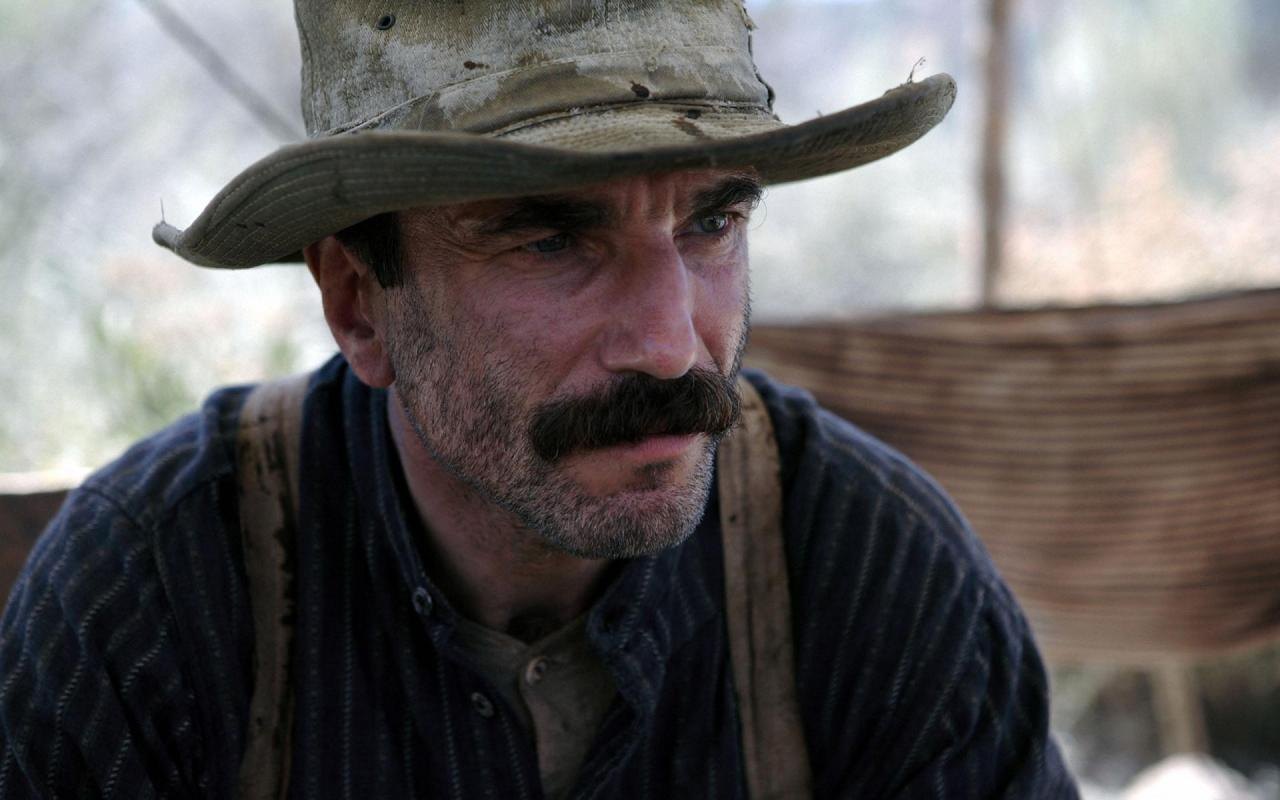
Of course, there can never be a list of great characterizations without a movie starring the great Daniel Day-Lewis, arguably the greatest actor working today. In fact, I was very close to having this at the top, and a lot of it had to do with Day-Lewis’ brutally honest performance as Daniel Plainview. But, having decided that a great characterization is a combination of great writing, great direction and great acting, I decided that there is one movie that could top this one. However, that shouldn’t take anything away from this P T Anderson masterpiece, where he conceives a terrifying man whose sheer presence lingers within your psyche long after you make his acquaintance. Anderson as usual lets his characters drive the narrative forward in ‘There will be Blood’, an epic historical drama chronicling the rise and fall of the ruthless, sociopathic oilman Daniel Plainview in the early 20th century.
In portraying a man who will stop at nothing in his quest for wealth, Anderson gives us one of the finest deconstructions of the idea of the American Dream, where capitalism both creates and destroys the future. And above all, Anderson’s greatest achievement here is Plainview, a character so unpredictable and scary, his very presence becomes unnerving. Blinded by his obsession with wealth and money, Plainview is a man with no rules, no boundaries; he even uses an unsuspecting little orphan to play his son so as to come across as a compassionate family man. And Anderson crafts the movie around him, giving a compelling portrayal of American societal conventions of family, faith and religion. No film since Orson Welles’ tragic masterpiece ‘Citizen Kane’ has managed to give us an American as compelling and complex as Plainview in ‘There will be Blood’; and that is no mean feat.
Read More: Best Romantic Movies of the 2000s
1. Erika Kohut – The Piano Teacher
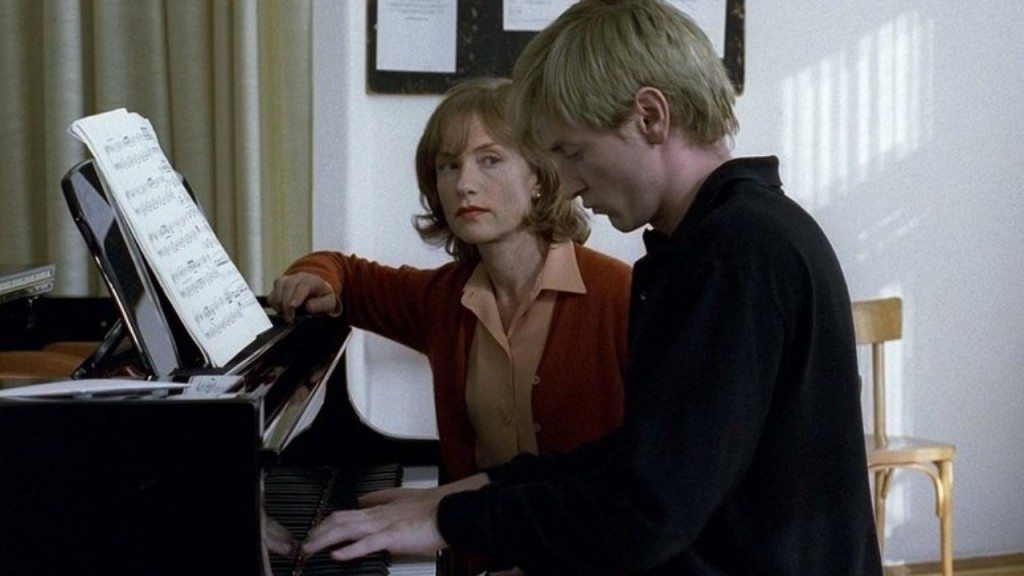
And there it is….. a controversial choice, yes, but a truly deserving one too. Michael Haneke’s gem is easily one of the most disturbing films of the century, and not because of any blood, gore or physical violence, but because Haneke has the audacity to take something as exciting and invigorating as sex and turns into a disquieting exploration of the dark voyeur that lurks within all of us. I had, in a recent piece, argued how Haneke’s cinema is a protracted exploration of violence that we have poisoned ourselves with, and how it affects all our choices and decisions.
In ‘The Piano Teacher’, Erika is a respected and widely admired piano teacher whose intellectual existence is more of a façade that masks the disequilibrium of her sexual life and her emotionally abusive relationship with her mother. She is a strong woman, however she is impossible to like or relate to because of the inhumanity of her actions, but as the movie progresses, we realize that Erika is not meant to be a real person; rather, she the alter ego of our worst selves – our worst desires, our worst actions and our worst side as a human being. She is also unbearable lonely and sad, and there are times where a tinge of sympathy creeps in, but Haneke doesn’t let it linger, because he doesn’t want us to like Erika. He wants us to abhor her, not because of her sexual proclivities or her controlling nature, but because he wants to shows us the mirror to what we have all really become.
A love story at its crux, with the ‘The Piano Teacher’, Haneke gives us a woman who doesn’t care about her actions, who just wants to exist. Very rarely do we cinema portray a woman with the depth and complexity that Erika displays, and it has lot to do with the French goddess Isabelle Huppert who puts in the performance of a lifetime. Few auteurs and actors have the gall to break off the chains and go all the way; Haneke and Huppert did, and in doing so, they gifted with one of the greatest character studies cinema has ever seen.
Read More: Best Civil War Movies of All Time

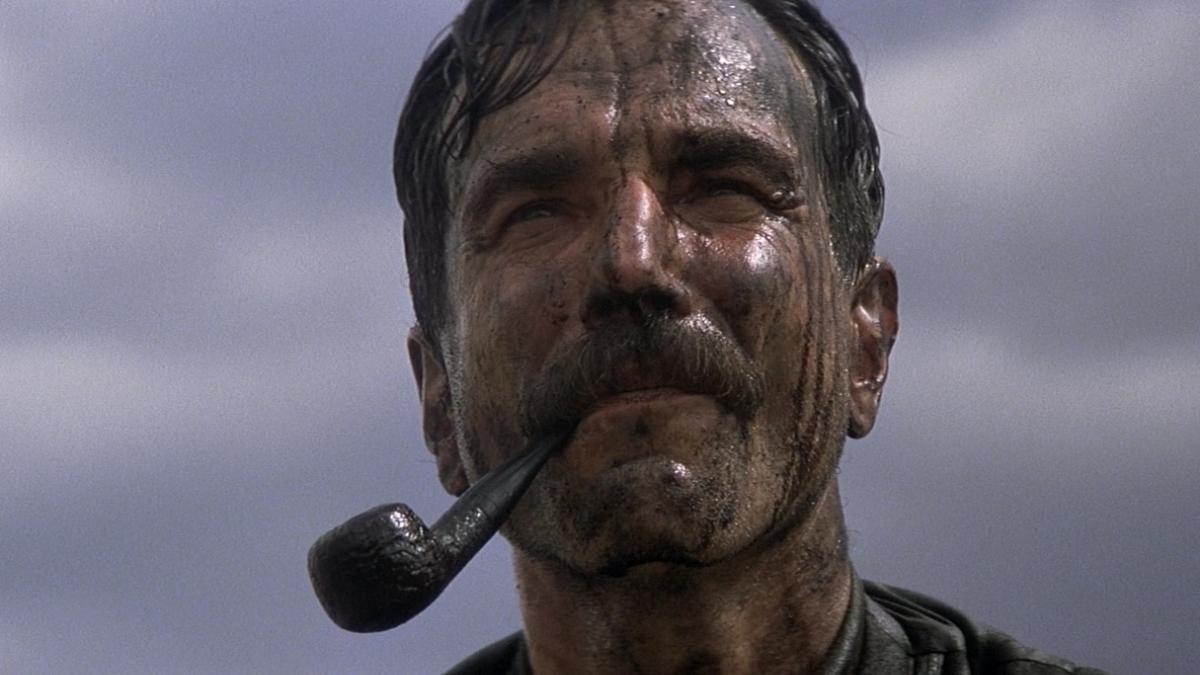
You must be logged in to post a comment.